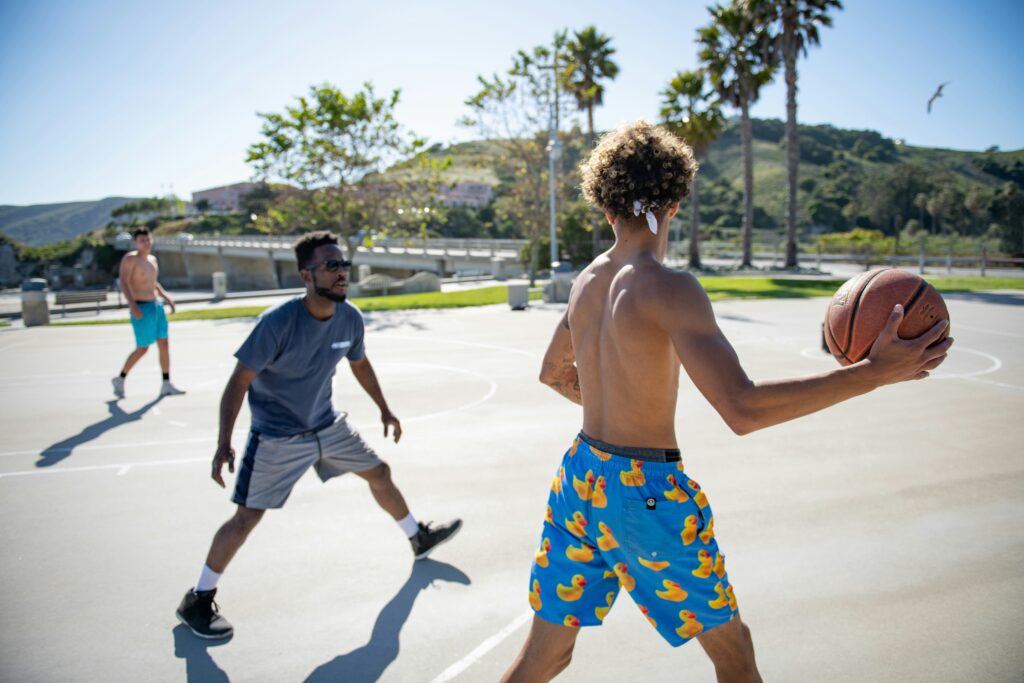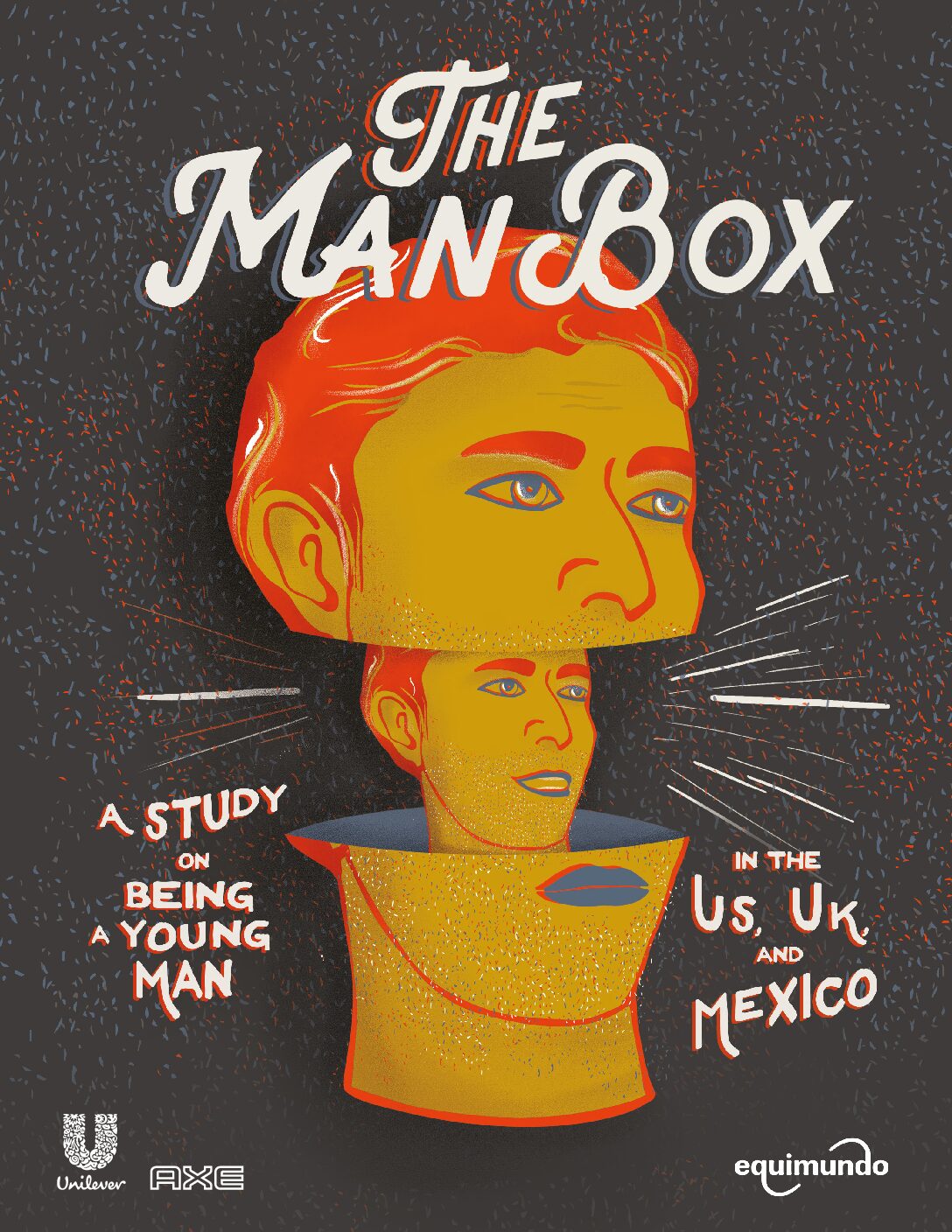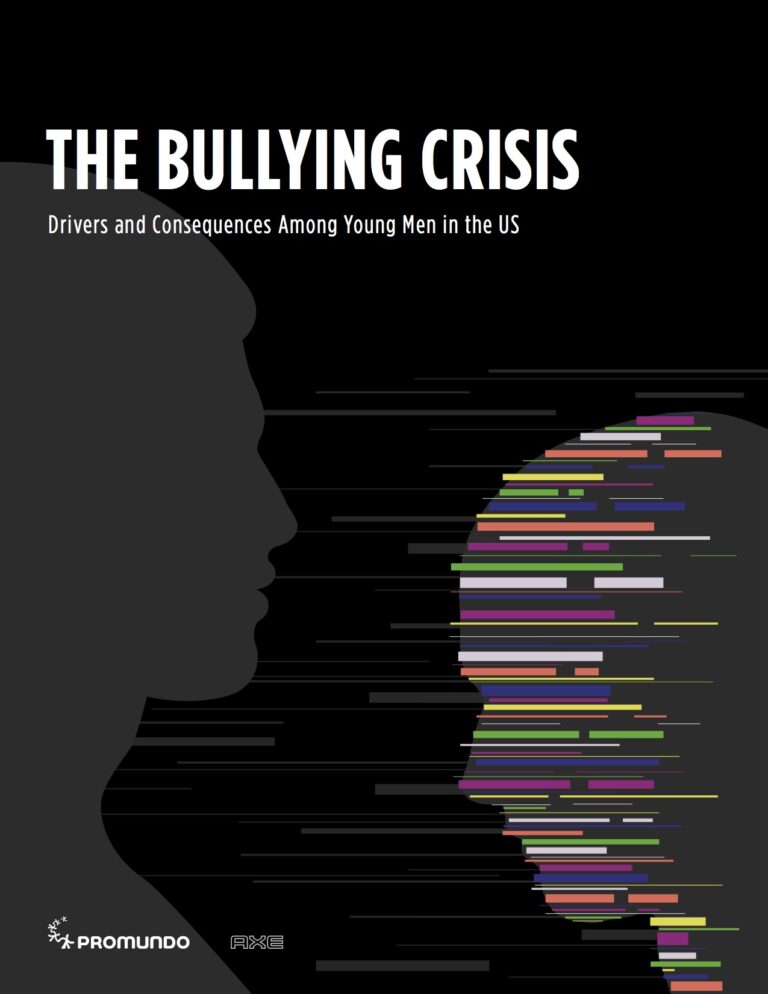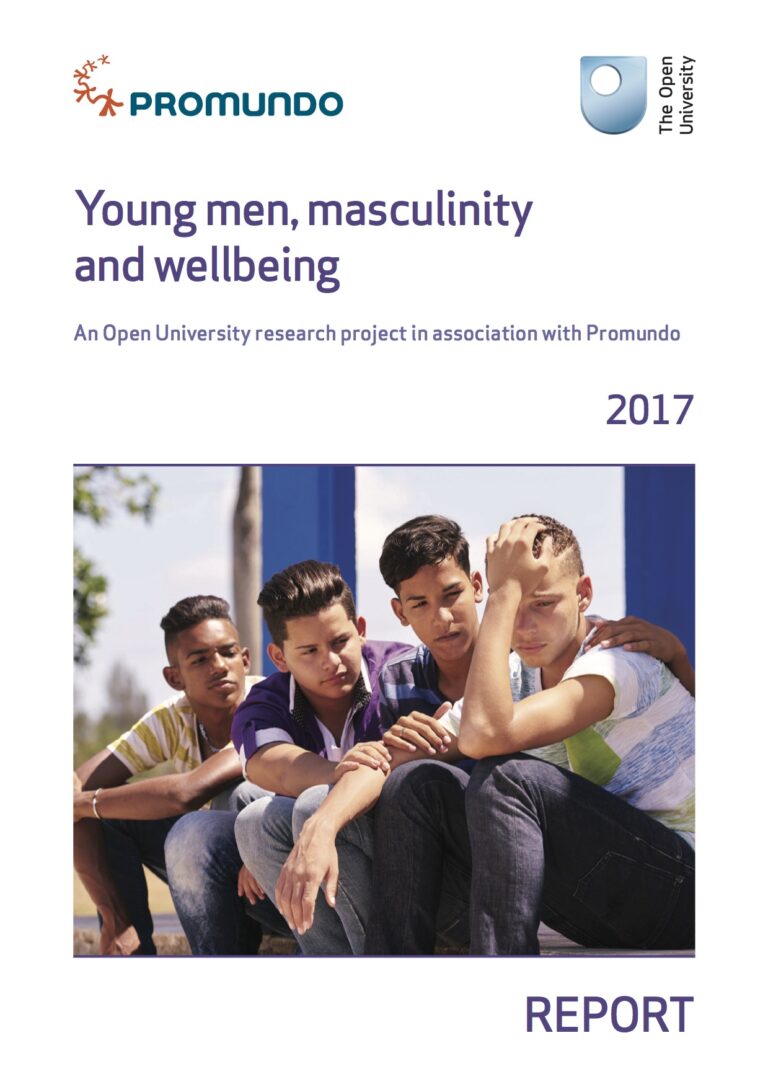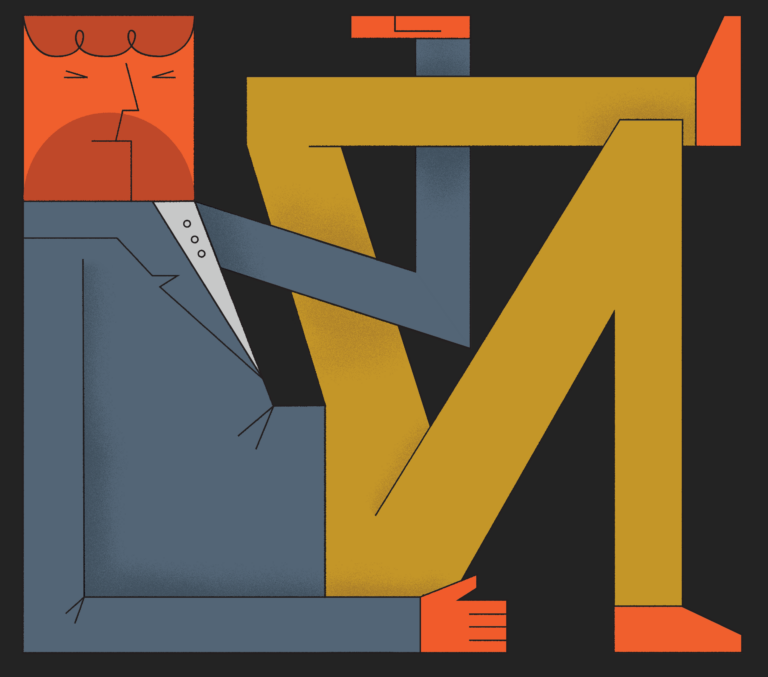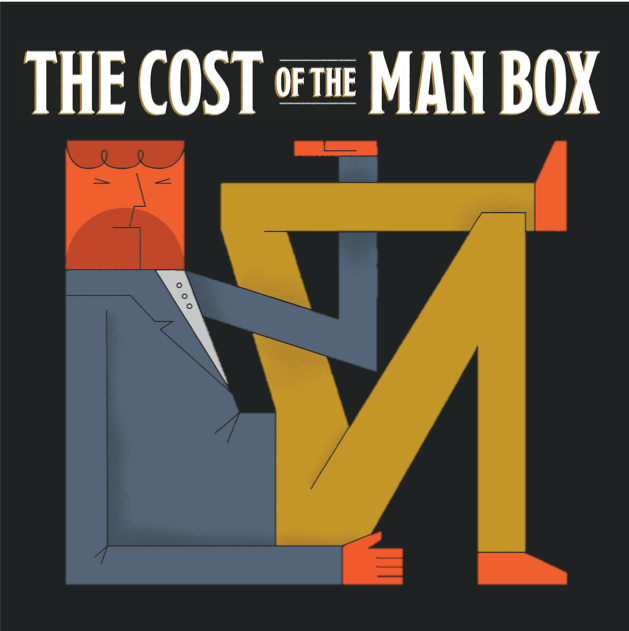“How does society let men act?” Undoubtedly this is the best question I’ve come across in my decade or so of field research related to harmful gender norms and violence prevention. It comes from a young man in Washington, DC, as he reflected on the lessons he’d learned in a masculinity-themed discussion group.
How fantastic to have a big bold question posed back at us the researchers for once, a question that just about encapsulates this whole experiment called “engaging men and boys for gender equality.” Clearly I’m still thinking about how to answer it! Honestly by this point I’ve repeated this same question in so many presentations that I’m sure my colleagues at Equimundo are sick of hearing it! In the context of his interview, the young man continued:
“How does society let men act? Because of society, the pathologies and powers that exist, men can only act a certain way. If you do not fit into the box, you are not labeled as a male.”
While program participants like this young man spend a lot of time discussing personal challenges such as how to build healthy, respectful relationships and live as true allies for gender equality, his bigger picture question is essential. Patriarchy and gender inequality are not only reproduced at the individual level, they are baked into our social institutions and structures. So let’s give his question the attention it deserves for a minute and try to answer it if we can.
On the one hand, this young man tells us his answer directly: society doesn’t let men get away with very much, at least not if they want to be “labeled as a male.” He says, “you can only act a certain way,” and seems to imply that men and boys face social instructions and pressures to, for instance, be tough at all costs, demonstrate aggressiveness and self-sufficiency, and aspire to all the other macho, heteronormative, misogynistic characteristics that activists in our field often call “the Man Box” for short.
And he’s right! Our research — including the study he was a part of — has shown that restrictive attitudes about how to “be a real man” are alive and well, in low-income and high-income countries alike, and sometimes even more strongly held by younger men than older men. We know that these attitudes are linked with many costly outcomes in the form of poor health, risky behaviors, and violence.
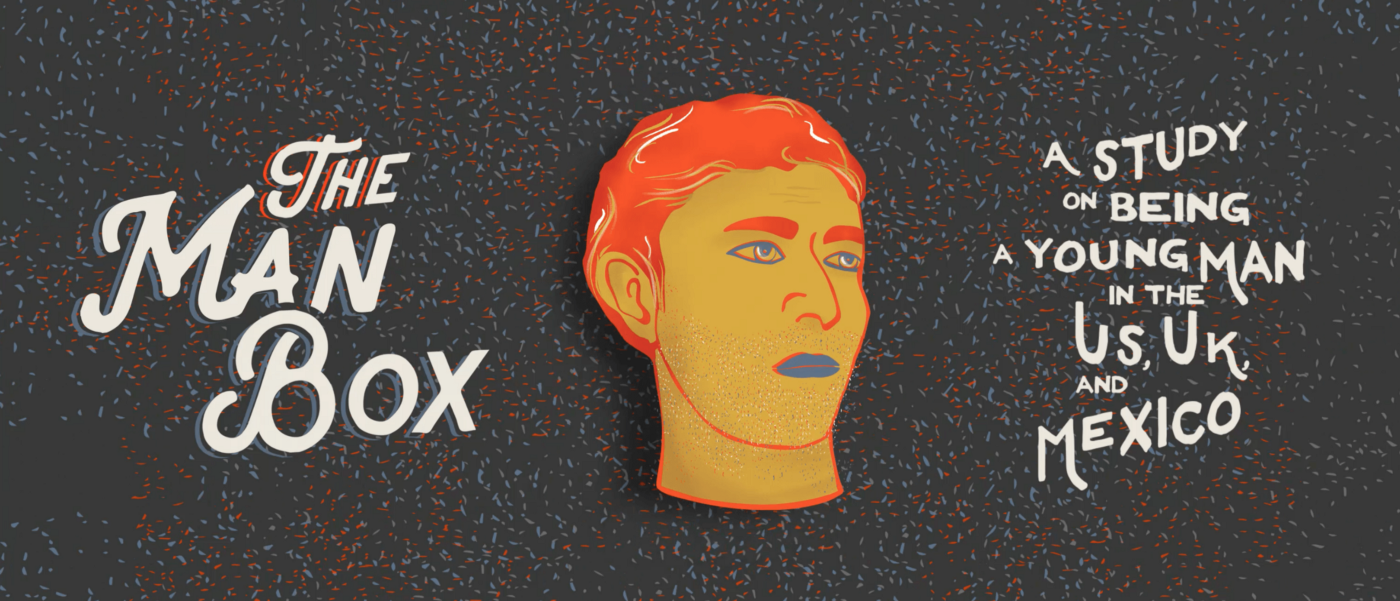
So that’s settled, then. Society has strict rules for men. But is the answer really that simple? We know that it’s not.
Even as I’ve just hyperlinked all sorts of evidence for this initial answer to the young man’s question, it’s also quite obvious that the opposite answer is true: our society lets men — especially those with disproportionate power and privileges based on wealth, race, and the happenstance of their birth — get away with pretty much anything. Men work less but earn more. Sexual assailants hold high office. War criminals receive peace prizes. I’m writing to you on land stolen from the Dakota and Anishinaabe people by men who look like me, in a country whose wealth was built by people stolen and enslaved by men who look like me (a white man in America). Men do and did these and other terrible things, in most cases were richly rewarded for doing so, and I don’t think it’s a stretch to say that a central organizing principle of our society is that powerful men get away with pretty much anything they want.
And thus the young man’s question becomes not a question at all, but a paradox that sits right at the heart of our work. Both answers are true, both answers are horrible, and both answers inspire urgent action.
To be sure, action to transform men’s relationship with masculine norms and to end impunity for men’s harmful behaviors is underway (as Gage’s new program review and policy brief so meticulously summarize). But ruminating on the young man’s paradox does inspire a few visions of transformative masculinities work for the future, along with a few more big, bold, unanswerable questions. In order to fundamentally change how society lets men act, or what society lets men get away with, evidence and experience shows that we must:
Address both answers at once, calling men in to more unbounded gender expressions and calling men out to face and embrace radical accountability. Our efforts to promote positive masculinities must certainly help male-identifying folks see the individual-level benefits and harms of “the Man Box” (and of demolishing it!). But in order to be truly transformative, the journey cannot stop at appeals to men’s self-interest. These appeals may be an effective entry point, but we need to inspire young men to respond as passionately to the second answer as to the first. To demand transformations in power and accountability, in addition to more opportunity for connection, themselves.
Break colonial patterns of power and influence. One part of the Equimundo story that is especially inspiring is how our curricula were conceived, constructed, piloted and field-tested first in Brazil, then in India, Rwanda, and the Balkans, and only decades later in the United States and Global North. It is a rare experience indeed in the field of “international development” for adolescent boys in Pittsburgh to be subject to a theory of change devised and revised by experts in Rio de Janeiro. We need to abandon the oppressions of our colonial forebears and instead inspire new ways of knowing, learning, and transforming society from communities we too often ignore or treat as passive “beneficiaries” of ideas concocted in wealthy countries.

Think bigger. I love how the young man’s question positions society as the “big bad,” and I wish more of our programs and research did the same. I’m not the first to say it, but it’s essential that work to break down harmful gender norms continue to move beyond measuring and affecting individual attitudes alone, and instead take a sharper focus on the broader institutions and structures that keep a patriarchal order in place, “let men act” in only narrow ways, and offer them impunity as a result of generations of unearned and unjust power and privileges. While we need to do work as individuals, the true, sustainable goal is to transform power structures and not just individual men’s relationship to them.
While this masculinity paradox is daunting, it does give shape to ways to work together to co-create a world where individual responsibility and collective change go hand-in-hand to build healthy masculinities and a more just world.
